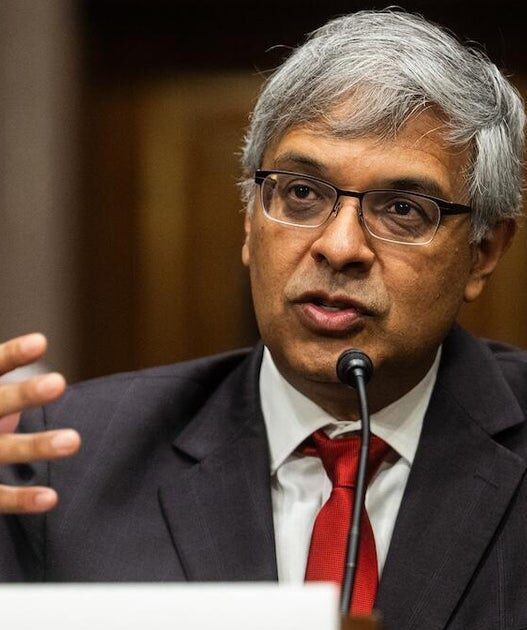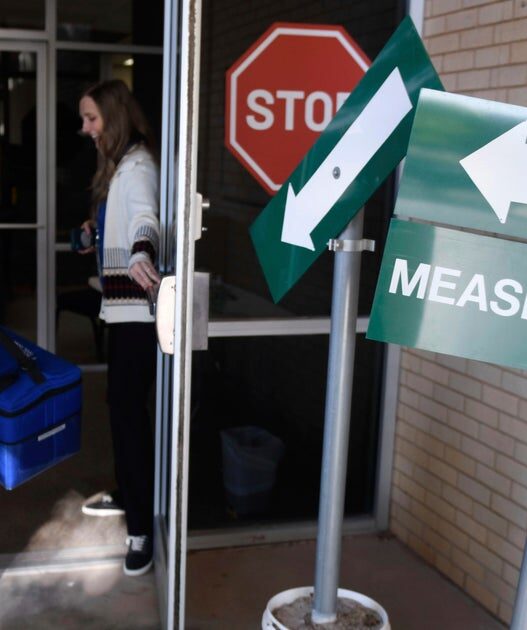Washington — House Republicans are facing the difficult task of slashing $1.5 trillion — with hundreds of billions likely in Medicaid spending — to help offset the cost of President Trump’s tax cuts.
House leadership has denied that Medicaid — a joint federal-state health insurance program that provides care for more than 70 million low-income adults, children and people with disabilities — will be gutted. But it’s unclear how Republicans plan to reach the level of spending cuts laid out in the budget resolution that Congress adopted earlier this month without drastically trimming the program.
The resolution directs the House Energy and Commerce Committee, which oversees Medicare and Medicaid, to find at least $880 billion in savings over 10 years as part of the package central to Mr. Trump’s domestic agenda. Cuts to Medicare, which provides health coverage for seniors, are off the table, leaving Medicaid funding as the most likely way to reach that target.
The nonpartisan Congressional Budget Office recently calculated that achieving those savings would not be possible without cuts to Medicaid, which accounts for 93% of non-Medicare mandatory spending under the jurisdiction of the Energy and Commerce Committee. Projected spending for programs other than Medicare and Medicaid totals $581 billion, meaning that even if the committee eliminated all other non-mandatory spending, which is highly unlikely, it would still come up short of the $880 billion goal.
Republicans have vowed to protect benefits for eligible recipients, and some have suggested that overhauling the program could help them reach their target instead of cutting benefits.
“We’re going to protect the benefits that everyone is legally entitled to, the beneficiaries who have a legal right to that, it will be preserved. Those are essential safety net programs that Republicans support. The president has made clear: Social Security, Medicare, Medicaid will not take a hit. So you can count on that,” House Speaker Mike Johnson, a Louisiana Republican, said on April 10.
Johnson argued that there’s billions in waste, fraud and abuse and said Republicans are considering Medicaid work requirements.
“We can find well more than $800 billion in savings, and we will,” Johnson pledged.
Rep. Jodey Arrington of Texas, the Republican chairman of the House Budget Committee, estimated at least $160 billion could be saved by kicking ineligible recipients off of Medicaid.
But Joan Alker, the executive director of the Georgetown University Center for Children and Families, said “there’s no way to achieve those savings without cutting health care for millions of seniors in nursing homes, children, parents, veterans, caregivers, people with cancer or disabilities.”
“Nobody gets a Medicaid check in the mail, and there are already processes in place to go after bad actors like fake labs or unscrupulous providers filing false Medicaid claims,” she said. “Proposals to cut fraud would fund more prosecutors and investigators to ferret out criminal activity but that is not what Congress is doing — these are just proposals to cut Medicaid.”
Another proposal under consideration is moving more of the cost sharing to the states that expanded Medicaid under the Affordable Care Act. Forty states have adopted the Medicaid expansion, and under that provision, the federal government pays 90% of the costs for expansion enrollees while the states are responsible for 10%. The federal government’s portion for those covered through traditional Medicaid can range from 50% to 83%.
Rep. Austin Scott, a Georgia Republican, said there are discussions about cutting the federal match for Medicaid expansion back to the traditional level.
“Nobody would be kicked off Medicaid as long as the governors decided that they wanted to continue to fund the program,” Scott said in an interview with Fox Business on Monday. “We are going to ask the states to pick up and pay some of the additional percentage.”
The federal government would save $626 billion over a decade if states assumed more of the expansion costs, according to a KFF analysis. If states are unable to shoulder the costs and eliminate the expansion, federal Medicaid spending would decrease by $1.7 trillion, the analysis found. The Medicaid expansion covers more than 20 million low-income adults, who would lose coverage if states are unable to pick up the expansion costs.
Last week, a dozen House Republicans in battleground districts wrote a letter to leadership and Energy and Commerce Chairman Brett Guthrie, a Kentucky Republican, that warned they would not support a final reconciliation bill that includes “any reduction in Medicaid coverage for vulnerable populations.”
“Balancing the federal budget must not come at the expense of those who depend on these benefits for their health and economic security,” they wrote. “Cuts to Medicaid also threaten the viability of hospitals, nursing homes, and safety-net providers nationwide. Many hospitals—particularly in rural and underserved areas—rely heavily on Medicaid funding, with some receiving over half their revenue from the program alone. Providers in these areas are especially at risk of closure, with many unable to recover. When hospitals close, it affects all constituents, regardless of healthcare coverage.”
The issue will come to a head in the coming weeks. The Energy and Commerce Committee plans to mark up its portion of the reconciliation package on May 7.
Cristina Corujo
contributed to this report.












